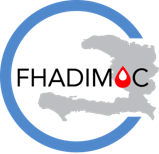Cardiovascular diseases are a group of disorders affecting the heart and blood vessels, which includes:
- coronary heart disease (affecting the blood vessels that supply the heart muscle)
- cerebrovascular diseases (affecting the blood vessels that supply the brain)
- peripheral arterial diseases (affecting the blood vessels that supply the arms and legs)
- rheumatic heart disease, affecting the muscle and heart valves and resulting from rheumatic fever, caused by streptococcal bacteria
- congenital heart defects (malformations of the heart structure already present at birth)
- deep vein thrombosis and pulmonary embolism (obstruction of the leg veins by a blood clot, which may release and migrate to the heart or lungs).
Infarctions and strokes are usually acute events and are mainly due to blockage of an artery that prevents blood from reaching the heart or brain. Their most common cause is the formation of a fatty deposit on the inner walls of the blood vessels supplying these organs. Stroke can also result from bleeding from a cerebral blood vessel or clots.


